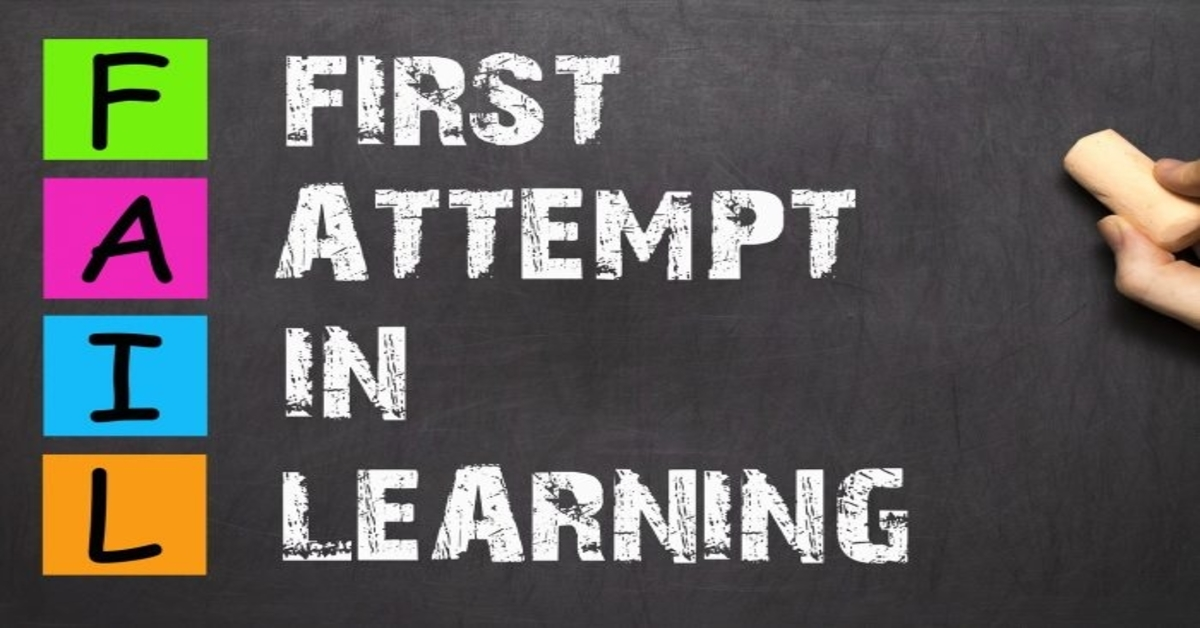Failure is the state or condition of not meeting one’s objectives, goals, or expectations. It is a common and often inevitable part of life, and it can occur in various aspects, including personal, academic, professional, and even recreational areas. Failure can be perceived in different ways and can have both positive and negative consequences: Failure is a common and natural part of life. People fail for various reasons, and it can happen in different aspects of life, including personal, professional, and academic areas.
Failure can be frightening, but as Winston Churchill once said, “the recipe for success is to go from failure to failure without losing any of your enthusiasm”.
It’s essential to understand that failure is not the end of the road but rather a part of the journey towards success. Many successful individuals have faced multiple failures before achieving their goals. The key is learning from mistakes, adapting, and moving forward.
Failure, like success, is often perceived as deserved. Perceptions can vary from person to person and culture to culture, but many societies strongly emphasise success and achievement. Failure can be seen as a sign of incompetence or inadequacy, leading to social stigma and the fear of judgment from others.
It’s important to note that Failure is a natural part of life, and it can also be a valuable learning experience. Many successful individuals have faced and overcome Failure on their path to success. Changing the perception of failure involves acknowledging its potential for growth, learning, and resilience. Embracing a growth mindset, where mistakes and failures are seen as opportunities for improvement, can help reframe how we perceive and respond to failure.
Failure allows us to bounce back, to learn from our mistakes, and helps us to appreciate success.
Why are we afraid of failure in society?
The fear of Failure in society is a complex and multifaceted phenomenon influenced by various cultural, social, psychological, and economic factors. Society often places high expectations on individuals to succeed in multiple aspects of life, such as education, career, relationships, and personal achievements. Failing to meet these expectations can lead to a fear of being judged, rejected, or ostracised. Failure is sometimes stigmatised in society, and those who experience it may be labelled incompetent or lazy. This social stigma can be a powerful motivator for people to avoid failure at all costs. In a highly competitive society, the fear of failure is often intensified. The pressure to outperform others can lead to a pervasive fear of not measuring up.
Is it okay to fail at work?
To bounce back after a failure, you must also understand why it happened. So, an essential step before considering the aftermath is assessing what went wrong. Taking a step back allows you to see things more clearly and to identify the different stages or bad decisions that led to your failure. While the fear of failure can be a powerful motivator, it can also hinder personal growth and innovation. We learn far more from our mistakes than from our successes. The failure after which you are looking to bounce back may be due to a lack of experience or appropriate skills. In both cases, it can be an opportunity to review your skills and target those you need to strengthen.
Society’s attitudes towards failure can also evolve, with a growing recognition of the value of resilience and learning from setbacks. But it’s important to remember that failure, while often seen as a setback, can also be a valuable teacher. Many successful individuals have faced failure at some point in their lives and have used it as an opportunity to learn, grow, and improve. It’s crucial to embrace failure as a part of the learning process and to use it as a stepping stone to future success.
Accepting failure can be challenging for several reasons, and these difficulties are often deeply ingrained in human psychology and societal influences.
It’s high time we dare to spotlight those who have dared to fail, encourage them to share their experiences with as many people as possible, and reward and thank them when they can learn from them. In this respect, internal communication could prove exemplary and play a significant role in creating a genuine culture of the right to make mistakes, take risks, or take initiative.


